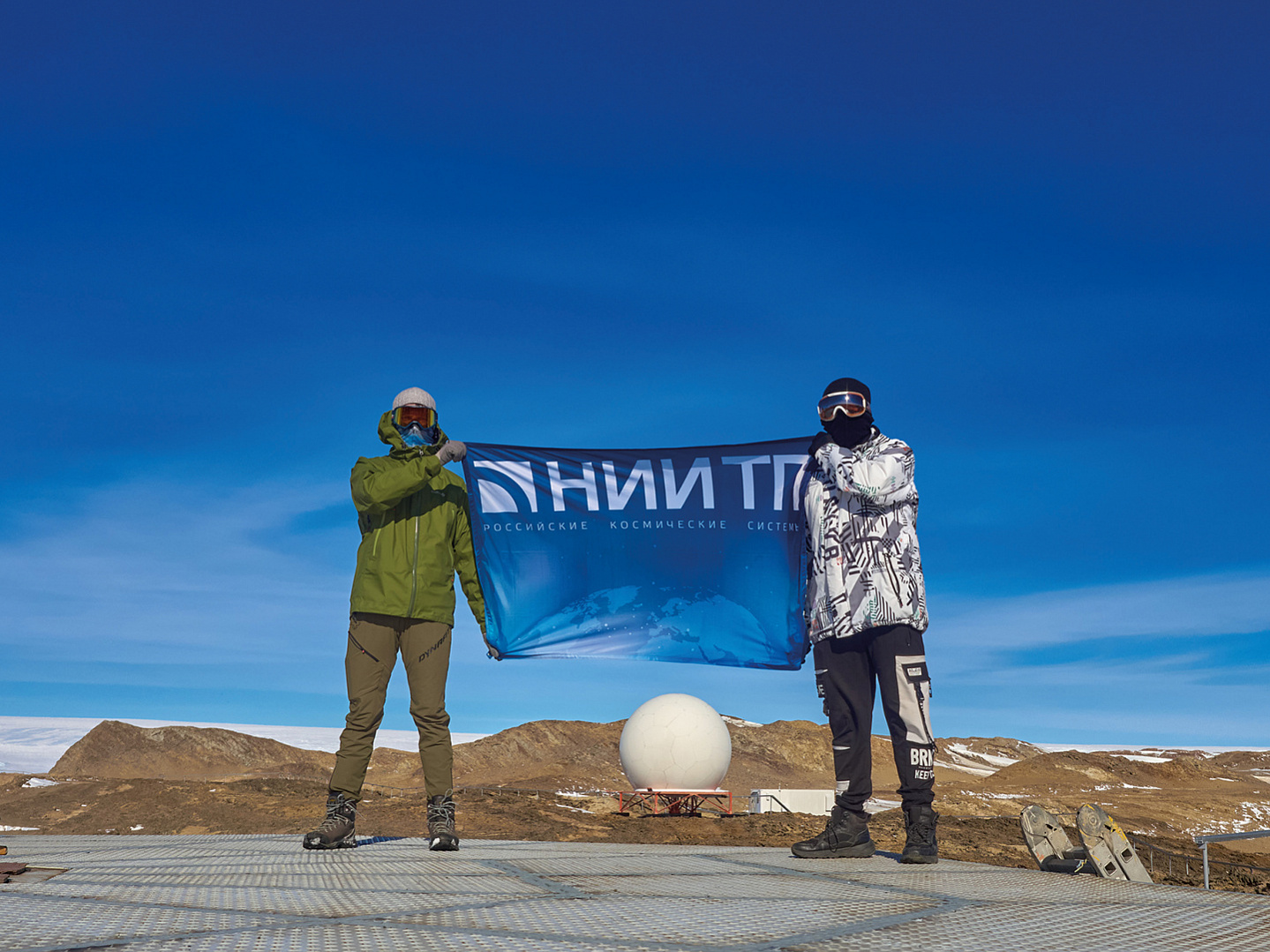Return from Antarctica

Aleksander Bormotin and Sergey Litvyakov, the specialists from our Institute’s division, focusing on designing and building information systems, participants of the 69th Russian Antarctic Expedition (RAE) of the Roshydromet Arctic and Antarctic Research Institute (AARI), returned from Antarctica.
Our colleagues conducted a series of work on installation of support structures for Stationary ERS Data Acquisition Complex (SAC- 5), designed at RIPI for acquisition of the ERS data from spacecraft of RESURS-P, KANOPUS, METEOR series, etc. The expedition participants carried out a wide range of compulsory activities on technical and author's supervision, training of expedition staff on specifics of the remote sensing center equipment’s operating conditions. The Antarctic Regional Center is part of the Integrated Geographically Distributed ERS Information System, developed by RIPI, which combines the ground infrastructure for receiving and processing data, captured by the entire ERS spacecraft constellation. The SAC-5 has been designed for acquisition of the ERS data within the Northern hemisphere from spacecraft, orbiting at a height of 300 km and higher.
Sergey Litvyakov is an experienced participant of the Antarctic expeditions, but Alexander Bormotin visited the Sixth Continent for the first time and shared his fresh impressions:
- While being in the employment phase, I learned that our division did work all over the country and beyond, including Antarctica. But then I took it as something unimaginable and very far from me and did not even think about the possibility of being a part of such a project. But I got this unique chance when I became the senior in the 69th RAE visiting group. Sergey Litvyakov, a member of the 67th RAE, was appointed my mentor in "Antarctic life".
Thanks to him, I was able to thoroughly prepare myself to adapt to the adverse weather conditions and difficulties of the expedition to avoid many beginners’ mistakes. It was great luck that Sergey Zuev, also an experienced AARI polar explorer, turned out to be an engineer for the Progress station’s satellite systems, which positively affected our joint activities. The first force majeure started upon the arrival of the Akademik Fyodorov Roshydromet research expedition vessel (REV) into the port of Cape Town: the problem was found aboard the vessel and the departure date was deferred indefinitely. When all the defects had been fixed up, we set off on our long journey – across three oceans. According to seasoned polar explorers, we were fortunate: we passed the stormiest waters between the latitudes of 40° and 50° south with only a very slight pitching – an experienced captain was at the wheel. There were many young specialists among the expedition members, just like me, gone on the expedition for the first time. We talked a lot, shared our expectations, emotions — many actually had a dream, that was coming true during that expedition. I thought, the lack of communications would have an unpleasant effect on a 21st century man, but I turned out to be completely wrong – one can live without a phone.
In early December, our vessel arrived to the coast of the Antarctic Continent, and our group landed at the Progress station. The difference with our Mission was that under the ERS Antarctic Center expansion program, we had to perform not only a series of regular activities on author's and technical supervision, maintenance, but also install a support structure for the Stationary ERS Data Acquisition Complex (SAC- 5). The working group, led by Pavel Starikov, an experienced polar explorer who had been engaged in similar work at almost all stations of the southern continent for many years, successfully executed the appointed task.
Our most serious challenge was the weather: in just a few minutes, it could change a beautiful sunny day into a dense blizzard, snowstorm. And, of course, permanent winds: as a rule, a storm warning would be announced at the Progress station for several days, and that always caused certain restrictions. The scope of work required was large, but we had time for leisure activities and recreation. I got acquainted with the most interesting people and professions. I believe, largely owing to this I did not have a feeling of isolation and loneliness, I wasn’t suffering from being torn from my home, family and friends. Definitely, the trip to Antarctica made a strong impression. Four months passed swiftly, leaving many bright and awesome points in my memory. On the way back, the ship was sailing half empty, but we were returning from the long journey filled with a sense of pride, satisfaction over the fulfilled expectations and that our dreams had come true, and our thoughts got already home.
RIPI Press Service